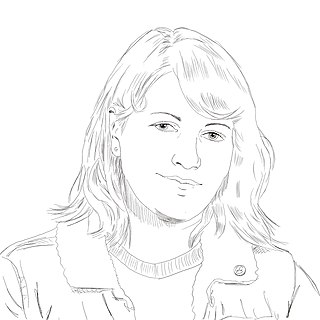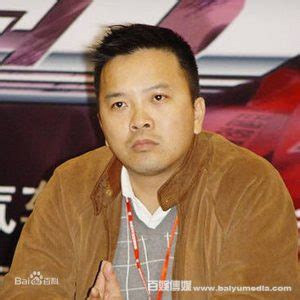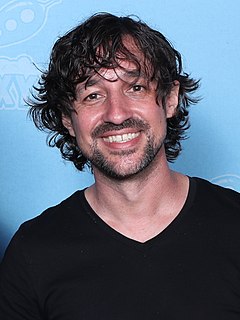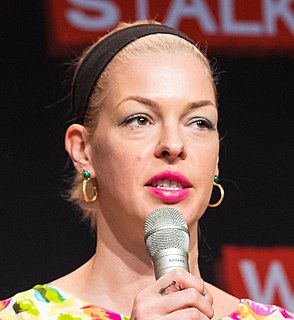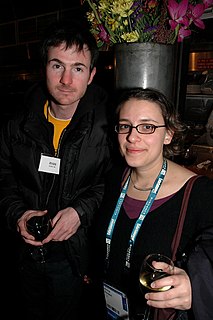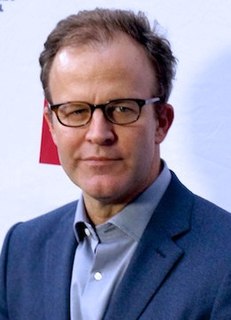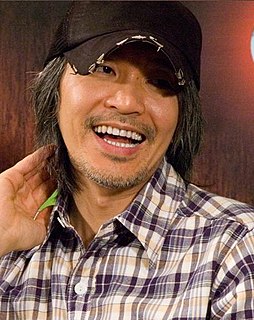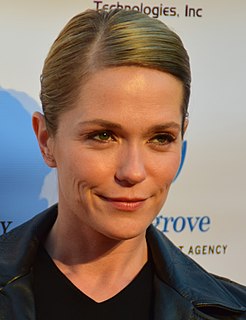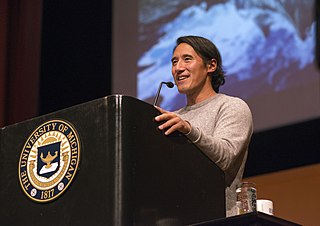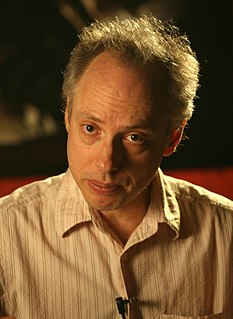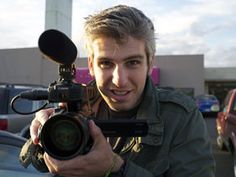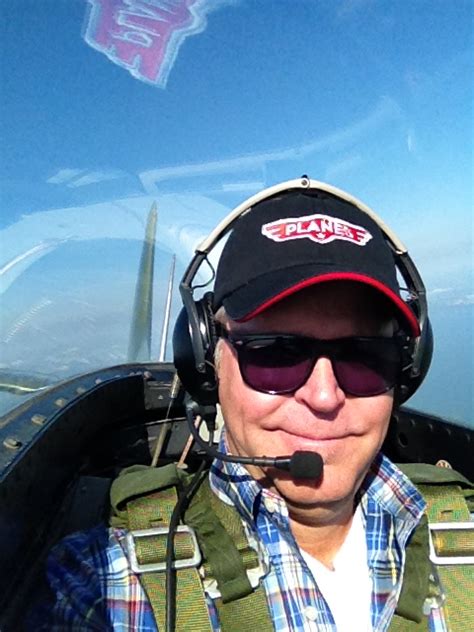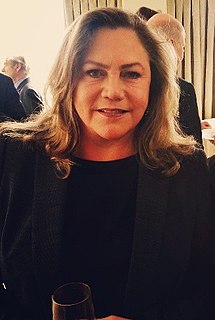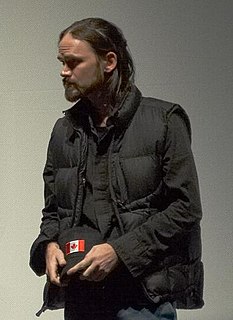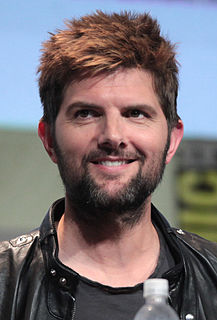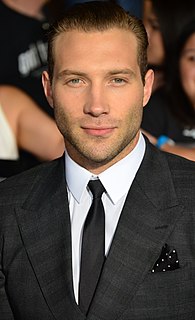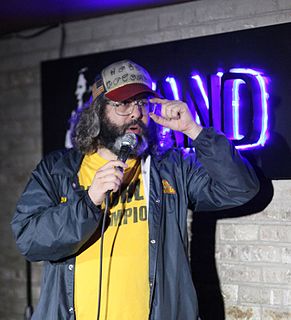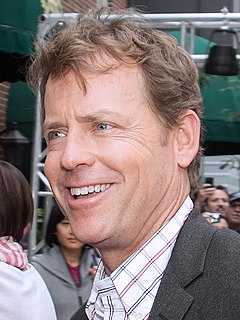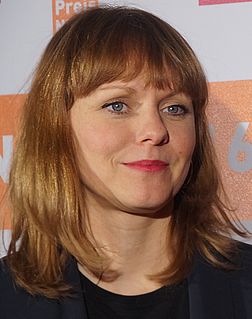Top 967 Filmmaking Quotes & Sayings - Page 15
Explore popular Filmmaking quotes.
Last updated on November 27, 2024.
With filmmaking, I for so long was like, oh, I need permission to go out and be a director and be a filmmaker. And I read Robert Rodriguez's 'Rebel Without a Crew.' He just went out and did it, man. In his book, he even says just put your name on a business card and say you're a filmmaker. Congratulations, you're a filmmaker.
I feel like the beauty of this age of filmmaking is that there are more tools at your disposal, but it doesn’t mean that any of these new tools are automatically the right tools. And there are a lot of situations where we went very much old school and in fact used CG more to remove things than to add things.
There are days when either filmmaking feels like an insurmountable practice - here's a lot of obstacles in the way to make it happen - or you think, "What does this all add up to?" You don't know what to do with the footage, and you've asked a lot of people for their time and a lot of people to be patient with you. And then you lose faith that you can actually make a worthwhile story out of this.
At a certain point, I got interested in set design for the theater. I was interested in architecture, but I was taking photographs at the same time, and architecture, though it had the design element, it didn't have the narrative, emotional element that I was looking to do. I ended up painting for a while. I was dancing around it, and I realized that all these different interests came together in filmmaking.
Among today's directors I'm of course impressed by Steven Spielberg and Scorsese, and Coppola, even if he seems to have ceased making films, and Steven Soderbergh - they all have something to say, they're passionate, they have an idealistic attitude to the filmmaking process. Soderbergh's Traffic is amazing. Another great couple of examples of the strength of American cinema is American Beauty and Magnolia.
Through my newspaper comic strip, public speaking, and filmmaking, I try to tell as many people as possible, of all ages and from all walks of life, that we are destroying the ocean at such an alarming rate that we can't wait for a systematic solution. We can't wait for our political leadership to warm up to the idea, and we can't wait for the free market to find alternatives. We must act as individuals, now.
Intuition is the key to everything, in painting, filmmaking, business - everything. I think you could have an intellectual ability, but if you can sharpen your intuition, which they say is emotion and intellect joining together, then a knowingness occurs. Feeling correct is a feeling I think everyone knows.
I try to make films where the audience forgets the filmmaking and gets engrossed in the story as it unfolds. I don't want them to ever feel bored, or that they're being told what to think, or to feel depressed. I don't like films about victims - I want to celebrate brave survivors like Brenda and the wonderful women in the film.
It would be great to continue shooting on film. Amongst other things, the mystery of not knowing exactly how it's going to look until we see it later and having your DP and being able to trust in him that he's the holder of how this is going to look is a beautiful mystery of filmmaking I'm loathe to look up.
The relationship between art and a job is not quite linear, but I really love any and all manifestations of art, really respect any kind of artistic impulse, whether it's paintings and sculptures or really good filmmaking or music. I really see the relationships between these different mediums as very fluid.
Taking chances is my job; some will connect and some won't, and certain films find their audiences in different ways. I think 'Spotlight' probably is a better movie because of 'The Cobbler.' You learn with every movie you make: you learn from your mistakes, and you learn from your achievements, and I really do have that approach to filmmaking.
I was aware of the possible biases you could get as a commercial director, like being too concerned about the technical aspects of the form rather than anything of substance. If you keep working in commercials, you can get trapped in a very superficial way of thinking. I always used commercials as an exercise for filmmaking, like going to the gym.
The reason I do what I do is that I find that Asian community gives me an endless source of humour. When I entered the filmmaking business, my whole purpose was to promote and make us visible because we were very much on the margins. So, I wanted to make us mainstream. My work has helped to mainstream-ise the Asian community.
When I started making films I just decided "I'm the filmmaking equivalent of a garage band and I'll just make my garage band movies." But even the same musicians from garage bands would go to my movies and you could tell what they liked from the way that they dressed and they would be the first ones to walk out.
I feel like when you do things with such a small budget, it actually makes you be more creative... and allows you to concentrate more on the story and the characters. I think that there is something about dirty, gritty and raw filmmaking that makes it feel a little more natural and makes it easier to connect with the action.
I became passionate about nature filmmaking when I graduated from UCLA, and one of the things I always wanted to do was shoot really high quality film, so I got into time-lapse photography - so that means when you shoot a flower, you're shooting, like, one frame every twenty minutes, so that's basically two seconds of a film per day.
It seemed like there were so many options in filmmaking before. If they don't want to make it, well okay, there's a hundred other places we can try. I'm not a producer and I don't even know the places my producer goes to, thankfully. But I think there are far fewer options now to releasing a movie theatrically or to getting the financing.
When I was an actor in some movies a long time ago, I was so curious about all the camera movements - why is the camera placed here, and why does it move like this? And why the set and the background, the color? It's a lot of questions for me to ask, because I was so interested, not only in acting, but also the whole process of filmmaking.
I came to filmmaking as an actor looking for great characters and great opportunities, both of which are kind of hard to come by. It turns out I really love the process. And, it's exciting to be able to take my career by the reigns and make things happen for myself. Hopefully, in doing so, more opportunities will become available to me.
You know what it is, the reason so many 18-year-olds, 19-year-olds are saying 'Drive' is their favorite movie is that 'Drive' is a 90-minute trip into what a lot of seventies filmmaking was. It encapsulates the best of a certain kind of style, and a style that a lot of people haven't seen before, with the music and the way it's edited.
There are parallels between filmmaking and climbing mountains just in terms of the commitment it requires, absolute devotion, and the belief that you are going to make a film and that the film is going to be OK, as well as the risks you have to take. You are never going to climb anything great if you don't take risks.
Maybe many directors are trying to create their own style of filmmaking, or to respond to audiences that come expect a certain style from them. But I don't care about that - I don't intend to have a 'Miike' style. I just pour myself into each film, enjoy it, and then what comes out just seems to have a 'Miike' style.
I think I read films having grown up around the pre-production and post-production aspect of the filmmaking medium, a lot more than most young people who are in acting would have experienced. I do think about scripts in a different way. I can't just read a script as an actor. I don't know how to do that.
You should never settle for what you think is just good. You should drive the editors and writers and everybody nuts until it's great. And if you don't go for great, you won't end up with good. You've got to go beyond your wildest dreams because the exigencies of filmmaking are going to smash you into the ordinary.
There's a thing I really mind hearing, when someone says: "That's not my kind of film, I don't want to go and see that..." I don't believe that, I don't believe that it's possible to write off a whole genre of filmmaking - "oh I don't like subtitled films", or "I don't like black and white films", or I don't like films made before or after, a certain date" - I don't believe that.
What makes me put pen to paper? You know, that's the million-dollar question. I've been writing since I've been reading. It's not a question I think that's even meant to be answered, but it's something you always seek to discover the answer to. And the process of filmmaking is one of discovery, and self-discovery at that. Pleasure... it's not exactly what I would call fun, but it's absorbing.
I usually get involved in the interviews about the animators and the filmmaking in general, because I had a chance. I got to know, not only Marc Davis, but Frank Thomas, Artie Johnson, Ward Kimball, all these great animators, and just ask them all these questions about how they did certain things, what their trials and errors were, the ups and downs.
I was going to design sports cars, but my father came to my college to visit me. At the time he was making a picture in Sweden and he took me there with him. I got to see Ingmar Bergman's company and I thought, 'Gee, filmmaking is a lot more fun than sports cars,' so I decided to follow him and go into acting.
Working on 'The War Room' was a thrill, not only because we were given such exquisite access to the nerve center of Bill Clinton's first presidential campaign, but for me personally, it was so exciting to be producing my first film and working with documentary filmmaking legends D.A. Pannebaker and Chris Hegedus, who were the film's directors.
In 'The Bourne Identity,' I wanted to give the audience the feeling of being in the car with Jason Bourne, not just watching him drive but be in the car with him, and 'The Wall' is the continuation of that immersive filmmaking style. Where you're trapped behind the wall with Aaron Taylor-Johnson - for better or worse, you're trapped there with him.
When I studied with Nicholas Ray he was always telling us, "If you want to make films, watch a lot of films, but don't just watch films, go take a walk, look at the sky, read a book about meteorology, look at the design of people's shoes. Because all of them are part of filmmaking." So I thought, perfect! That's a good job for me.
There is a whole separate filmmaking team that's doing it, but that's part of what's great about the Brain Trust and about the inspiring leadership of John Lasseter. He leaves it up to that creative group of individuals to help each other elevate each thing that they're working on to only try to make it better and to share what you've learned on the first one.
I love the new technology in terms of giving access to doing more independent work. When I first started out, any film had to rent from Panavision and the expenses were humongous. Now, given the advances in technology, you can put out extraordinary quality filmmaking at nothing like the price it used to be.
I think that there's a natural attraction to enigmatic characters, people that have decided to make a decision in their lives to live differently than everyone else. That's a very attractive quality that also happens to be good for filmmaking, people that have their own point of view and aren't looking at things the same way as everyone else.
I think you can maintain two tracks. I think you have to. That's what this kind of filmmaking is about. If you're not aware of the limitations of what you're up against... it's like a general: you have to know your artillery and you have to know your infantry. You have to know what you have. You have to marshal your forces and use them well. It comes down to the personal and the intimate, but at the same time you have to have the big picture.
Every film, obviously, everyone starts out aiming at making it good, and in the end, filmmaking is really fragile. Making a film is like building a house of cards on the deck of a speeding boat, or playing chess on train tracks. Every opportunity feels like that; it's the one artistic field that's unlike most of the others.
Mostly it's like, I get inspired by something and I want to learn that part of filmmaking, I want to delve into that kind of depth. And leading, also, a lot of people. A lot of people, for two years of their life they follow me, and they believe what I believe in. So that's some responsibility and I'd like to make it worth the effort.
More and more, you're seeing television shows that are better than 99% of the movies out there. I mean, you watch something like the last couple of seasons of 'The Sopranos,' which is some of the most sophisticated writing I've ever seen filmed and some of the best filmmaking I've ever seen - and it's a TV show.
I love that about filmmaking - seeing final product and getting to see everyone else that you don't necessarily engage with on set every day and getting them to showcase their talents. Whether it's effects, music, the edit, the rhythm of a film is driven by that, so it's cool to see it come together. It's great to be standing in front of something you're genuinely proud of.
I love writing and the little filmmaking I have attempted, but comics is the means of artistic expression that feels most comfortable to me. It's also still a largely uncharted medium with enormous unrealized potential. I like finding new ways to communicate an idea or a feeling, ways that can't be duplicated in other media, so I take great pleasure in the invention and exploration that comics necessitates.
You hear it said time and time again by successful directors: You have to make a movie for yourself. Don't make it for anyone else. My style of filmmaking happens to be give the audience what they know they don't want, but they want. Ultimately I have to write and direct in a way that let's just say, you don't want to regret making a choice.
I think, for me, Julian Schnabel set a great precedent in being able to cross over so successfully. I feel like his artwork is kind of big, grand, and bombastic, yet the films that he makes are very beautifully sensitive, and I just feel that his filmmaking sensibility is very different from his artwork.
I always do casting for every role, even if it's just one sentence. I like to work with theater actors because they're used to a process. I think filmmaking sometimes can become so stiff. Sometimes I have the feeling that people come together praying in the morning that, "Let's just shoot something, no matter what! Let's just finish this day, no matter what we will tape!"
